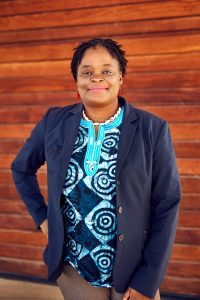It Takes a Village: Black-Led Database is Accepting Canadian Data
January 20/2021
by Françoise Makanda, Communications Officer at DLSPH
DLSPH Asst. Prof. Roberta Timothy is launching a Black-run and led survey to understand the impact of COVID-19 on the African and Black diaspora.
“This project is about life and death for our community. Too many people know someone who got COVID or died from it or COVID-related comorbidities,” says Timothy who leads the project.
Black people continue to be disproportionality affected by the virus. The survey will shed light on their plight and provide guidance on immediate interventions to support Black communities. Thanks to a gift from the Institute for Pandemics and Balsam Foundation, the comprehensive project includes a Canadian bilingual survey, international survey, focus groups and community-based interventions.
“Data should be interpreted by us and created and developed by us,” says Timothy. “That’s how this project came about. It’s about creating our own data system.”
Funds have already been used to launch a national survey which is already taking responses from Black Canadians. The survey includes questions about vaccine uptake, their experience as frontline and essential workers, mental health, migrant work and parenting among many others.
As for the transnational survey, the team will accept data from the United Kingdom, the United States, Latin America, Brazil, Honduras, Kenya, Cameroon and South Africa and their neighbouring countries with its upcoming launch this March 21st.
“The data should be transnational because we have shared experiences,” says Timothy. “But it is intersectional as we are looking for respondents from all socioeconomic backgrounds and a trans-generational perspective from various gender identities through a Black feminist perspective.”
The project’s funding tackles four major initiatives along with the national and transnational survey: A national focus group will unpack survey results; Timothy will host online focus groups to understand the national impact of COVID-19 on Black Canadians, and her team will host a two-day learning institute to share survey results for further discussion this Fall.
Finally, the team will use data from both the survey and focus groups to develop community-based interventions and outreach that they can implement quickly. Communities are already doing intervention work. Timothy hopes to bring them into the project’s umbrella while arming these groups with survey results.
The project has two advisory committees formed of academics, community, health leaders and experts in disability and will be implemented through the help of DLSPH students.
The lack of race-based data has always been a concern in public health. But Timothy anticipates ongoing challenges in collecting this information since Black people are wary of how their data will be used.
“There’s a history of data being used for the ill treatment of Black people,” says Timothy. “There’s a history of not trusting data and how it is used. But Black folks associated this stuff with white people coming in and doing bad research. It is quite different when it’s Black-led. This is why this project is Black-centred and Black-led — so their voices can be heard.”
She argues that too few Black-led projects receive funding. She is grateful for the generous gift from Balsam Foundation and support from DLSPH’s Institute for Pandemics.
“Everything I do is about missing voices,” says Timothy. “It’s not just a survey. It’s about empowering Black folks with Black-led health studies to speak their voice.”
The project is seeking 10,000 responses nationally. You can fill out the survey here. The project leads are accepting donations. Interested parties can make their gift here.
